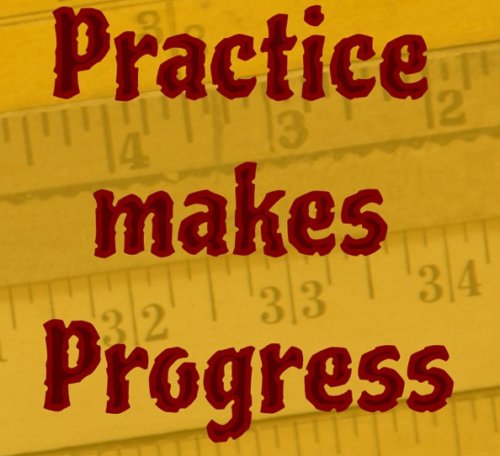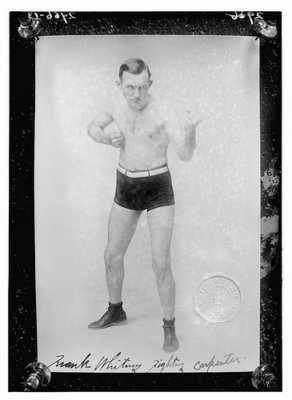Depression in Sport – What Have Top Athletes Got to Be Down About?
 What do Victoria Pendleton (Britain’s most successful female Olympian), the middle-distance runner Kelly Holmes (double gold winner at the Athens Olympics), the boxer Frank Bruno (heavyweight champion of the world) and cricketer Marcus Trescothick (hero of the 2005 Ashes) have in common, beyond being excellent sports players?
What do Victoria Pendleton (Britain’s most successful female Olympian), the middle-distance runner Kelly Holmes (double gold winner at the Athens Olympics), the boxer Frank Bruno (heavyweight champion of the world) and cricketer Marcus Trescothick (hero of the 2005 Ashes) have in common, beyond being excellent sports players?
They have all suffered from depression.
If you have personally suffered from ‘ the black dog’ it can be hard to believe that such wildly successful sportspeople like the above could ever feel as low as you have. What do they have to feel bad about?
Enough, apparently. Depression in sport is now seen as a growing problem.
Why is this? And what can we learn from the struggles with depression of professional athletes that we can then apply to our own attempts to stay psychologically healthy?
Perfectionism And Punishment
One of the main characteristics of an elite athlete is his or her constant quest to be the best. Training regimes are often extremely strict, and as well as competing with others an athlete is competing with themselves and their own records on a daily basis.
 It’s a recipe for the rise of perfectionism, and perfectionism, with it’s nagging soundtrack of self-criticism, is a recipe for depression. It’s very hard to be in a good mood if you are constantly seeing yourself as not good enough, or setting yourself against demanding standards unachievable goals.
It’s a recipe for the rise of perfectionism, and perfectionism, with it’s nagging soundtrack of self-criticism, is a recipe for depression. It’s very hard to be in a good mood if you are constantly seeing yourself as not good enough, or setting yourself against demanding standards unachievable goals.
Amongst athletes it’s been seen that perfectionism, if it doesn’t lead to substance abuse or an eating disorder, can instead lead to self-punishment including self-harm.
Olympic athlete Kelly Holmes, honoured as World Sportswoman of the Year in 2005, has shared that before her double-gold triumph in the 800m and 1500m at the Athens Olympics she was so frustrated by her recurrent injuries slowing her down that she locked herself in a bathroom. She is quoted a saying that after she seized a pair of scissors, she “made one cut for every day I’d been injured. With each one I felt I was punishing myself but at the same time I felt a sense of release that drove me to do it again and again.”
Jonny Wilkinson, the athlete who over a decade ago dropped the goal that won the rugby World Cup for England, shared the following:
I was so desperate to get it right, so driven by the annoyance and fear of not getting it perfect, that the anger I felt inside began to express itself physically… I started shouting at the walls, screaming obscenities. I punished myself for my mistakes, too. At one stage, I was so livid that, before I knew it, I was sinking my teeth into my hand, trying to bite through the skin between my thumb and index finger.
LESSON: While it’s great to want to push our boundaries and expand as people, perfectionism is a different game that becomes no longer about growth but about self-punishment.
Are there areas in your life you are punishing yourself for a notion that you are ‘not enough’? How could you instead celebrate what you have achieved in those areas?
Obsessive Tendencies
The world champion cyclist Graeme Obree knows more than most about top-level sport and depression (he attempted suicide twice). He suggests to us that athletes are prone to depression not because sport makes them that way, but because they already have a personality that is vulnerable to depression.
Obree believes that happy-go-lucky people don’t reach extreme heights of success in sport because they lack the drive. Instead, obsessive personalities are the ones who get to the top. And obsession often leads to highs and lows of mood.
Obree was quoted as saying, “It’s not that sport makes people depressed. A lot of people who suffer from depression have a tendency to have obsessive behaviour – that’s why more of them exist in the top end of sport. The sport is actually a self-medicating process of survival.”
LESSON: Take note of where you are become obsessed with success instead of enjoying things in and of themselves. What would you lose if you tried to enjoy the activity itself more and panicked over success less? And what would you then gain?
Loss, Failure, and Rejection

By: FromSandToGlass
Loss and feelings of failure are often critical components in the emergence of clinical depression, leaving one feeling rejected or overlooked. And there are few vocations as pockmarked by loss, separation, transition and change as the career of the professional athlete.
Whether an Olympic swimmer or international batsman, athletes are subject to a succession of potential failure, from not qualifying for the next heat to the menace of losing the wicket on the very next ball.
Then there is the fear of being “dropped” from the team (an evocative term in itself) that athletes must deal with.
As the Australian test cricketer Ed Cowan explains: “A professional sportsperson is his or her performances. From experience I can say it can feel like you have ceased to exist when failure is the story of your day”.
LESSON: If your find you experience low moods due to a sense of failure, ask yourself, in what way are you setting yourself up to feel not good enough and rejected? Are you constantly choosing to persue a career or hobby that is not natural for you? What things are you good at, and could you let yourself do those things more?
Isolation
Some sports – notably international cricket – demand that players be away from home and separated from their families for considerable periods of time, thus depriving them of a support structure in times of need. Former England fast-bowler Steve Harmison describes his feelings of homesickness and depression at being holed up in a hotel room for more than six months of the year:
“You feel alone, insecure, isolated and you feel as though the world is swallowing you up, that you are wading through treacle. You do not want to eat, you do not want to drink and you rarely sleep. The nights become longer and longer because you are awake for most of them. It is so, so tough. I can remember sleepless nights where I would be in tears and then going out to play the next day.”
Given that humans are by their nature pack animals who require social support, it’s not surprising that athletes on the road experience depression.
LESSON: Social connection is essential to maintain even moods. Are you guilty of blocking yourself from the support of others? Are their ways you could cultivate and appreciate your social networks more?
Living in a Bubble

By: KENNETH BARKER
Perhaps the sportsperson’s greatest fear is the life event from which there is no return – serious injury. This, along with retirement from the game, has been identified as a key trigger in the onset of depression in sportsmen and women accustomed to operating at an elite level.
Both injury and being retired from the game leave professional athletes not only contending with a reduction in their income, prestige and position, but losing the support structure that they might have known all their lives and have barely existed outside of. Such structures are often tightly-controlled and micro-managed to maximise performance. Outside influences are kept to a minimum, with experienced coaches and trainers on hand to master technique and perfect the body’s physical capabilities.
One can imagine, similar to the depression that is experienced by many top business sorts when they retire, that when external reality intrudes many athletes may not have acquired the mental tools and independence of mind to make a smooth transition from their ‘bubble’ to the ‘real world’.
LESSON: No man is what he does for a living. A healthy life can never be one that only focuses on one thing. What steps could you take to cultivate a life that includes family time and a social life, hobbies and interests, and gives you an identity outside of your career?
Loss of Identity
Equally traumatic is the loss of identity that can follow injury or retirement, as the sidelined athlete fades into obscurity and young players take their place.
In an almost unbearable scene in the superb BBC documentary “Football’s Suicide Secret”, professional footballer Clarke Carlisle movingly describes how he could not stomach the prospect of never lacing his boots again:
Football was my reason for being. It was the reason that people liked me and loved me…. I thought: ‘I’m going to take all these pills and kill myself because I am now of no use to anyone because now, without football, they are going to see me for what I really am… nothing.
LESSON: Taking your identity from what other people think of you never leads to emotional wellbeing. Have you taken the time to have a well rounded identity that is no determined by other people’s opinion but your own?
Denial and Inauthenticity
There is an idea in society that athletes are tough, and, like all of us really, they often feed into what is expected of them. Let’s be honest, it’s easier – at first.
They don’t wear their heart on their sleeve,” explains Ian Maynard, professor of sport psychology at Sheffield Hallam University, “because that can cause problems in competition, so they tend to be more buttoned-up and get a mentally tough exterior.”
On top of this, famous and highly successful sports personalities have a whole other stress to deal with nowadays, too – the cult of celebrity. Their lives can be under constant scrutiny, and one wrong move can be something that they are haunted by for years to come. Of course in some situations, like that of Wayne Rooney, one could argue it is warranted. But what about the case of the boxer Frank Bruno, faced with a front-page headline of “Bonkers Bruno Locked Up”?
It’s no wonder, with such judgements so quickly doled out, that many sports stars take refuge in denial and pretend to be someone they are not, “privatising” or burying any depression. They adopt a “false self” (a term coined by the psychoanalyst Donald Winnicott), a carefully constructed persona designed to protect their more vulnerable self by masking the appearance of shame, fear or anxiety.
But this attempt to ward off feelings of failure, this apparent antidote to powerlessness, can only ever be a temporary measure, as it distances us from our authentic feelings and authentic self. A common manifestation of this type of persona in sport (as elsewhere) is the happy-go-lucky, larger-than-life character, who ultimately feels that no one actually knows what he or she really feels like.
LESSON: First comes the lesson of authenticity. It’s always better to be yourself, because trying to be something you are not tends to backfire. Are you being true to yourself, or causing yourself undue stress by trying to live up to others’ ideas of what you should be?
Next is the lesson of overcoming stigma. If you think it’s shameful to get help, others will agree with you. Be proud you have the strength to want to explore who you are and maximise your emotional health, and let others take their cue from you on this front.
Conclusion
The idea that athletes don’t get depressed – and somehow shouldn’t get depressed – is built on a series of false premises. First and foremost, the notion taps into the myth that people at the top of their game are somehow immune from feelings of anxiety, worthlessness or melancholy.
The truth is, depression is indiscriminate. Whether you are rich or poor, at the top of the pyramid or the bottom, depression can hit any of us at any time. Willpower alone cannot banish the illness. Nor can physical strength. And public adulation is no protection.
At the same time, depression is often thought to reflect a lack of mental toughness or symbolise personal failure. But try telling that to the likes of Ian Thorpe (who has won five gold medals in the Olympic pool), or Celtic manager Neil Lennon, both of whom have been smothered by chronic depression.
The real show of strength is not, after all, not falling into depression. It’s instead having the wherewithal to put aside pride and seek help. And it’s being courageous enough to, like all of the athletes mentioned here, stand up and talk about our emotional health. This way we can get rid of stigma and pave the way for everyone to feel more at ease talking about emotional wellbeing. Because like it or not, at some point we ALL will have challenges to our moods.
There is another, even more deep-seated, reason why the general public struggles with the reality that an Olympic athlete or professional footballer may be immobilised by depression.
Our sporting heroes are the recipients of immensely powerful projections. We load our favourite stars with massive expectations, assuming that, as they are gifted in one area of their lives, so they must be exceptional in every other domain. As with all heroic characters, we have an almost childish need for them to be superhuman and flaw-free.
But by wanting others to be perfect, all we are doing is imposing a desire for perfection on ourselves, which just leaves us always comparing ourselves and never feeling good enough.
In other words, demanding perfection of others just makes us more vulnerable to depression ourselves. And the sooner we give others a break – yes, including top athletes – the sooner we can give ourselves a break, too.
So spread the word – nobody is perfect, and nobody has to be. Not even a World Cup winning rugby player or one of the world’s greatest Olympians.
Enjoyed this article? Share it! Want to know when we post the next interesting piece? Sign up above for our updates and monthly newsletter.





